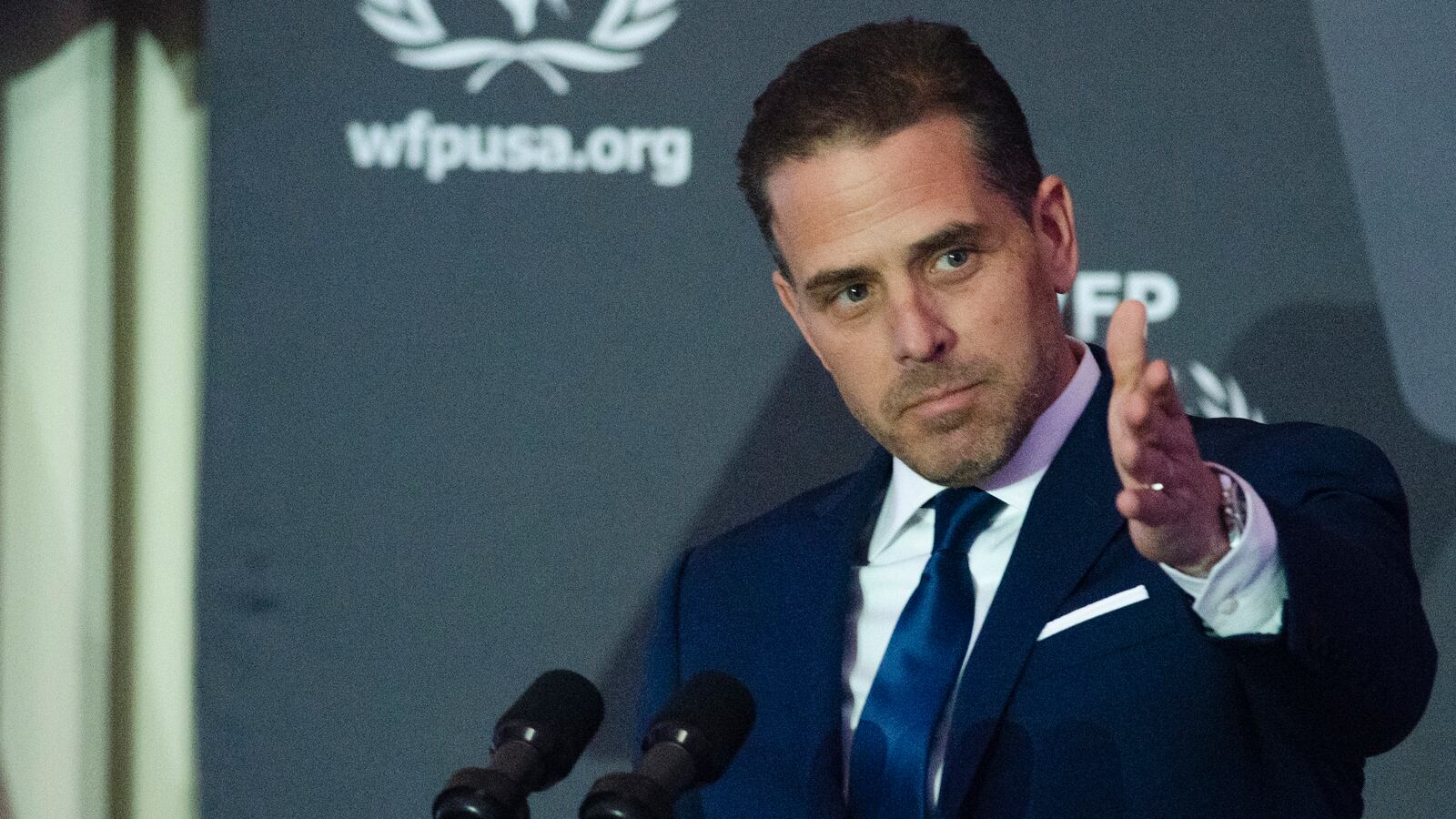Hunter Biden’s legal team on Monday filed a request asking a judge to dismiss the federal gun charges against him, saying that prosecutors have failed to hold up their end of a dead-in-the-water plea bargain.
The argument was included in a burst of documents filed by Biden’s lawyers in Wilmington, Delaware, where his gun case is playing out. Also included in the filings are a separate argument that the case violates Biden’s Second Amendment rights and a motion to have Special Counsel David Weiss dismissed on the grounds that he was “unlawfully appointed” to the position.
“These charges are unprecedented, unconstitutional and violate the agreement the U.S. Attorney made with Mr. Biden and DOJ’s own regulations,” Biden attorney Abbe Lowell told the Associated Press in a statement. “This is not how an independent investigation is supposed to work, and these charges should be dismissed.”
Lowell did not immediately respond to a request for comment on Monday night.
Weiss, who was appointed as special counsel in August after investigating Biden for years as U.S. attorney in Delaware, filed the gun charges against him in September. Biden pleaded not guilty in October. If convicted, he will face up to 10 years in prison.
Last week, Weiss filed nine federal tax-related charges against the president’s embattled son in a separate California case. He is set to be arraigned in Los Angeles on those charges, which carry a maximum penalty of 17 years in prison, as early as this week, according to Bloomberg.
Weiss’ appointment and his seeking of the federal indictments came after the collapse of Biden’s plea agreement over the summer. The deal would have allowed him to plead guilty to two federal misdemeanor tax charges while entering a diversion program on one felony gun charge, all of which would have seen Biden evade jail time.
Instead, it imploded after the judge overseeing the case questioned its specifics and the two sides reportedly clashed over immunity terms. Following a period of “additional negotiations,” prosecutors announced that they’d reached “an impasse” with Biden’s team.
Whether or not the agreement is legally binding hinges on a technicality—that a court probation officer never signed the deal ahead of the July plea hearing in which it unraveled. However, Biden’s team has repeatedly insisted in the months since that it is still “valid and binding.”
On Monday, they reiterated that claim. “Neither the Court nor anyone else is a party to the Agreement,” they wrote. “The Agreement need only be approved and executed by the parties to become effective, and that has occurred.”
His attorneys also argued that prosecutors were wrongfully trying to “renege and backtrack” on the deal, under the provisions of which Biden couldn’t be hit with new tax or gun charges. “No matter how much external criticism the prosecution may face for proposing, drafting and signing this Agreement, it is too late for it to now disclaim its commitments under the Agreement that it struck,” they wrote.
At issue, in terms of Biden’s gun charges, is an 11-day period in 2018 in which he owned a gun after lying on a federal form about his drug use. However, a federal appeals court in New Orleans ruled in August that people shouldn’t lose their gun rights solely over drug usage—and while that ruling currently does not apply to Delaware, Biden’s team cited it in their Monday motion.
“While Congress could criminalize gun possession from someone who was actively intoxicated, or perhaps someone who at least actively had a controlled substance in their body,” their filing states, “a prohibition on gun ownership by anyone who had at some time used a controlled substance is constitutionally overbroad.”
Lowell and his team argued that it was “inevitable” that the Supreme Court would eventually uphold the appeals court’s decision.
Finally, they turned to Weiss’ appointment, insisting that Attorney General Merrick Garland had violated a Justice Department rule that “special counsel shall be selected outside the United States government” precludes Weiss, who was serving and has continued in his role as U.S. attorney, as a pick. Biden’s team also accused Weiss, a Trump appointee, of “[buckling] under political pressure to bring more severe charges” against their client.
The prosecution has until mid-January to respond to Monday’s filings. A start date for a trial on Biden’s gun charges has not yet been set.




